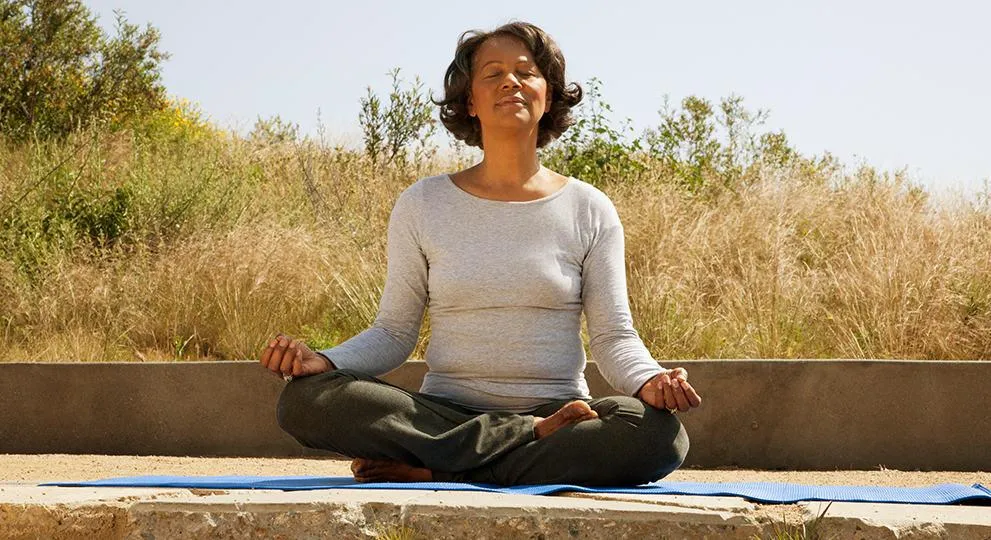Relaxation techniques to care for your mind and body
Relaxation techniques to care for your mind and body

Cancer and its treatment can be stressful. That’s why it’s important to learn some ways to help manage stress. Here, you’ll find some tips and techniques that may help. Remember to always talk with your healthcare team to decide what approach is right for you.
Meditation
This mind-and-body practice is a well-established relaxation technique to help reduce stress.
Most types of meditation have four common elements
- A quiet location with few distractions
- A comfortable posture or comfortable poses
- Intentional focus on a word, object, or your breath
- An open attitude toward yourself and your environment
When you’re first learning how to meditate, it can help to have someone to guide you along. This could be a healthcare professional or a yoga or meditation instructor. Your healthcare team may be able to recommend a class or instructor.
Some types of meditation involve movement, while others don’t.
Talk with your healthcare team to decide what’s best for you.
1. Stationary meditation
- Guided imagery
- Mindfulness meditation
- Focused meditation
2. Moving meditations
- Yoga
- Tai chi and chi gong
- Walking meditation
Gentle yoga
By connecting the mind and body, gentle yoga may help
- Improve concentration
- Have a positive impact on mental health and reduce stress
Based on your diagnosis and treatment, your healthcare team may advise against certain yoga poses, such as twists, back bends, and forward-bending stretches.
Talk with your healthcare team about the type of yoga you’d like to try. Be sure to include details like room temperature, poses, breathing practices, and body positions during meditations. This way, your team can help you modify poses or tell you what style of yoga is best for you.
Strike a pose
An easy yoga pose to start with is Mountain Pose
- Stand with your feet side by side and slightly touching
- Bring your pressed palms to the center of your chest and stand tall
- Focus on feeling energy flowing through your body, from your feet to your hands
If you want to switch things up, try this pose with your hands lifted up toward the sky.
Breathing exercises
Focusing on your breath can help “quiet your mind” and make you feel calmer. This method may help calm your breathing
- Inhale deeply while inflating your abdomen out
- Hold your breath for a few seconds
- Use your stomach muscles to exhale all of your breath
- Repeat these steps a few times
Before attempting this or any other breathing exercise, talk to your healthcare team—especially if you’ve had surgery that affects your abdominal muscles.
Guided imagery
Through guided imagery, a voice directs your attention in a specific way to help relax your mind. You may be asked to imagine walking through a forest, lying in the grass, or sitting by a beautiful lake. During these sessions, someone could be there with you to lead you through the exercise or you could listen to a recording.
Some healthcare professionals may have experience with this technique and may be able to recommend a local class where it’s offered.
Other positive coping methods to try
- Prioritize what needs to get done, and say no to new tasks that may overwhelm you
- Try light exercises like walking, but always speak to your healthcare team first
- Take time for creativity. An adult coloring book can be a great starting point
- Spend time with supportive loved ones, such as family, friends, or even pets
The health information provided here is for educational purposes only and is not intended to replace discussions with a healthcare provider. All decisions regarding patient care must be made with a healthcare provider, considering the unique characteristics of the patient. This information is intended only for residents of the United States.













